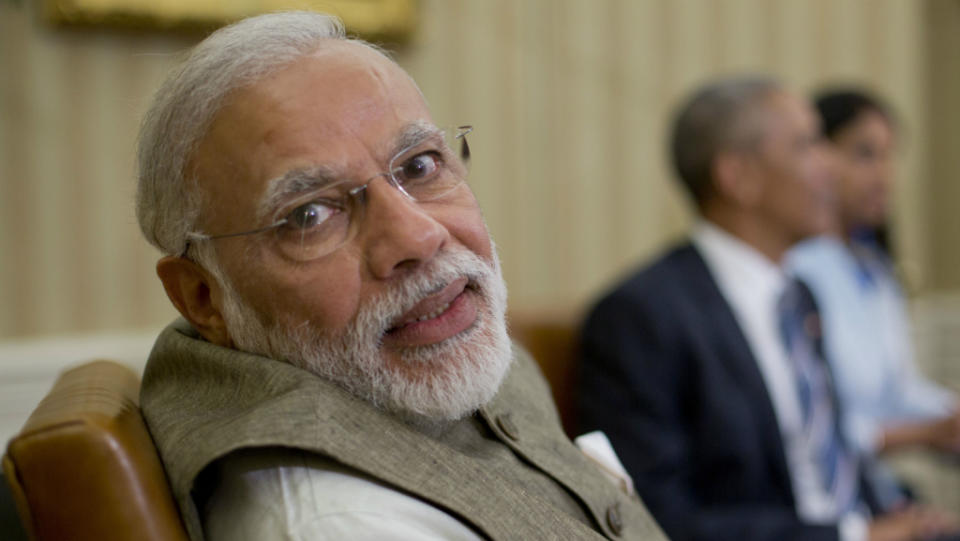Two years on, India is still a big fan of Narendra Modi

Two years after he came to power, India’s affection for Narendra Modi is undiminished.
The Indian prime minister, who took office in May 2014 promising to resurrect the country’s stuttering economy and run a corruption-free administration, continues to enjoy the admiration of his countrymen and women, a report by Pew Research has revealed.
The Washington DC-based think-tank, which polled 2,464 respondents between April 7 and May 24, found that a staggering 81% of those surveyed held a “favourable” view of Modi, including 57% who held a “very favourable” opinion. Similarly, about 80% of Indians held a “positive view” of Modi’s Bharatiya Janata Party (BJP).
Satisfaction with the direction in which the country is heading has increased by 36 percentage points since 2013, the Pew Report said. Nearly half of those polled were also supportive of India’s growing international economic engagement. Around 72% believe the next generation of Indians will be much better off financially than their parents.
These figures come amidst criticism of the Modi government from some quarters over alleged fuelling of intolerance and even interfering in people’s culinary traditions and habits.
In recent times, his government has also come under fire for the mishandling of the ongoing Kashmir crisis, with ramifications on the immediate security scenario as reflected in the Sept. 18 terror attack that killed 18 soldiers in an army camp.
But those who do back Modi come from all sections of the Indian population.
“Modi and the BJP enjoy overwhelming support among men and women, from people of all ages, educational backgrounds and income levels, and among people in rural and urban areas,” the Pew report said.


Growing political divide
The adulation of Modi has also meant growing polarisation.
“Views of Modi’s performance are increasingly partisan as the divide grows between how BJP supporters and Indian National Congress adherents judge his achievements,” the Pew report said. “When it comes to views of his leadership, roughly six-in-ten Indians who identify with the BJP see Modi as a unifying figure who stands up for what he believes and gets things done.”
Not surprisingly, only four in 10 Congress supporters agreed.
Over the past two years, there has been much hostility between the two political parties that has led to key reforms being hamstrung or severely delayed.

India’s place in the world
Since coming to power, Modi has made foreign policy the cornerstone of his administration, travelling to as many as 42 countries and building India’s image as a regional soft power.
The exercise is paying dividends at home. Roughly 68% of those polled believe India plays a more important role in the world today than 10 years ago.

“Young, middle-aged and older Indians all see their nation as more important today,” the report authored by Bruce Stokes, a director at Pew, and his team, said. “Indians also favour toughness in dealing with the world. A majority (62%) believes that using overwhelming military force is the best way to defeat terrorism around the world. Few (21%) worry that relying too much on such force creates hatred that leads to more terrorism. And 63% back increased defence spending.”

Sign up for the Quartz Daily Brief, our free daily newsletter with the world’s most important and interesting news.
More stories from Quartz:

 Yahoo Finance
Yahoo Finance 